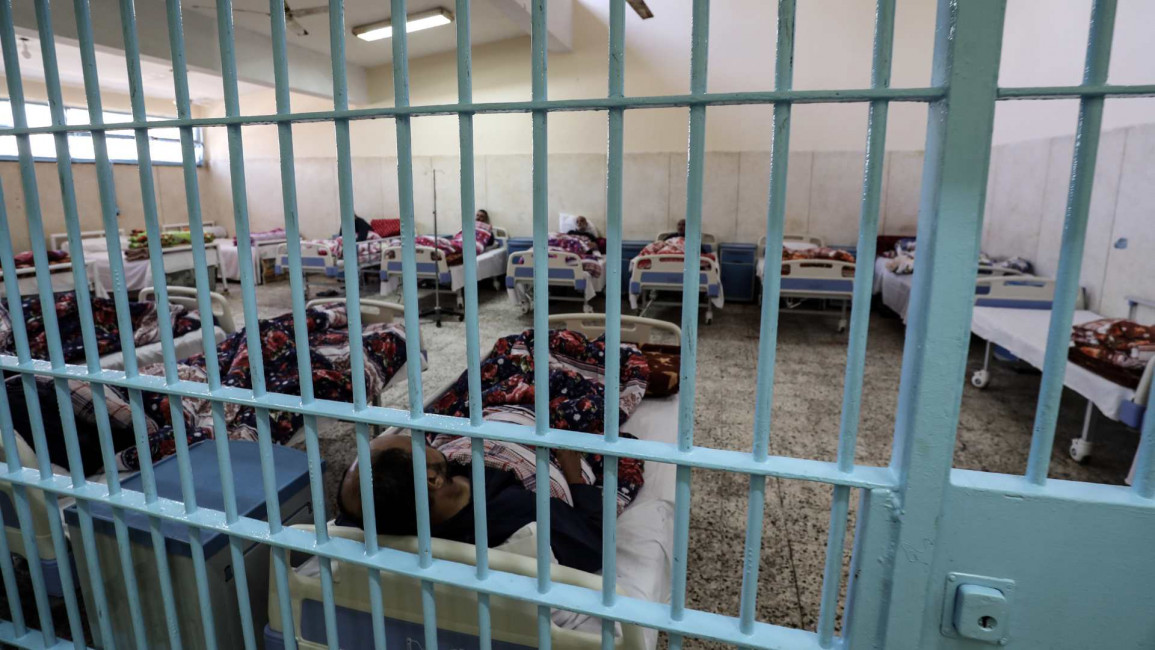Renowned jailed Egypt journalist dies after contracting Covid-19 in detention
A prominent Egyptian journalist, jailed on charges of broadcasting "fake news", died of Covid-19 on Monday, according to an international press watchdog.
The Committee to Protect Journalists (CPJ) reported that Mohamed Monir, 65, contracted the disease in pre-trial detention and was released after falling ill in custody.
It raises fears that the coronavirus may be spreading undetected in Egypt's notoriously overcrowded and unsanitary prisons.
"Even brief detentions amid the Covid-19 pandemic can mean a death sentence," the group said in a statement Monday.
Diaa Rashwan, head of the Egyptian Journalists' Syndicate, confirmed Monir's death in a Facebook post, saying they were in touch during his final moments at an isolation unit in Cairo.
Monir was arrested and taken to Cairo's notorious Tora Prison complex last month, after appearing on Al-Jazeera TV, which is banned by Egypt's government.
In 2013, following the military-led ouster of Egypt's first freely-elected but divisive president, Mohamed Morsi, authorities shut a local Al-Jazeera network, accusing the broadcaster of providing a platform for the banned Muslim Brotherhood.
|
When Monir's interview with Al-Jazeera came to light, prosecutors detained him for two weeks on charges of spreading fake news, joining a terrorist group, and misusing social media, his lawyer said at the time.
Political prisoners in Egypt can be held in pre-trial detention on vague charges for years, often in terrible conditions without proper access to medical care, rights groups say.
Read more: Disaster looms for Egypt's political prisoners as coronavirus fears mount
Monir had long suffered from diabetes and high blood pressure, but following his release from detention on 2 July his condition rapidly deteriorated as he battled what he believed to be the coronavirus.
Last week, Monir posted a video on Facebook saying he was struggling to breathe.
"I know if I go to the hospital I will never leave it," he panted. "I need oxygen... somebody help me, please do anything to help me. I am very tired."
Mahmoud Kamel, a board member of the journalists' syndicate, said the union found Monir an intensive care bed in Cairo and helped him get treatment after he showed symptoms of the virus.
Since rising to power in 2013, general-turned-President Abdel-Fattah Al-Sisi has intensified a clampdown on dissent, jailing thousands of perceived critics.
Read more: Egypt's relentless war on journalism persists amid pandemic
The CPJ ranks Egypt among the worst jailers of journalists in the world, while rights groups have repeatedly called on Sisi to release thousands of political prisoners who are vulnerable to an outbreak of Covid-19.
Instead, Egyptian authorities have sought to further stamp out dissent, arresting journalists and doctors who have been critical of the government’s handling of the pandemic.
The health ministry has recorded 82,070 infections and 3,858 fatalities from Covid-19, the highest death toll in the Arab world.
Activist Sanaa Seif, the sister of prominent political prisoner Alaa Abdel Fattah, was among those arrested last month on charges of spreading "fake news" about the spread of the coronavirus in Egyptian prisons.
She, her mother and another sister had been raising the alarm over Abdel Fattah's health and the lack of virus protection in prisons, as they fear the disease could sweep through crowded cells amid a news blackout.
Agencies contributed to this report.
Follow us on Facebook, Twitter and Instagram to stay connected



